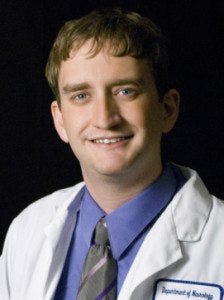10 Sleep Myths Debunked
Sleep Myths - Doctors Address Sleep Misconceptions
Many people have had trouble sleeping but a slight sleep disturbance, which happens occasionally, is certainly nothing to worry about. However, with sleep coming to the forefront of discussed health issues, more serious sleep issues are being identified. In fact, it is reported that 1 in 10 Americans daily lives are impacted by poor sleep. Sleep myths contribute to poor sleep, which in turn negatively impact our health.
Sleep Myths Can Lead to Serious Consequences
Sleep problems can be more serious than just sleeplessness, and can affect a person’s health in many ways. As more research is conducted and a better understanding emerges about the benefits of sleep, the more we realize how vitally important how a consistent, good nightly sleep is for everyone.
In this article we will explore some sleep misconceptions with noted sleep doctors in hopes of improving the understanding around sleep.
We asked two noted sleep doctors to address the following 10 sleep myths.
Sleep Myth: It is normal to snore as we age, and nothing to be concerned about.
Dr. Peters says: “Snoring may occur commonly, but when it is associated with other symptoms, it may not be normal. It is strongly linked to sleep apnea, a condition that becomes increasingly common as we age. Women in particular are at higher risk after menopause.”
Sleep Myth: Watching TV in your bedroom is a good way to fall asleep.
Another board-certified sleep physician says: “Absolutely not! In fact studies have shown that those who sleep with the TV on sleep an average of 1 hour or more per night that way. We think that the melatonin suppressing blue light may be able to penetrate the eyelid. In addition the sound from the TV may keep us in lighter stages”
Exposure to light helps regulate your biological clock or circadian rhythm. Watching TV, texting or exposure to too much light before bed makes getting a good night’s sleep difficult because it throws off the circadian rhythm. Light stimulates a part of the brain that controls hormones, body temperature and other sleep related functions and may also increase the risk of depression.
Sleep Myth: Old people need less sleep, but everyone else needs at least 8 hours of sleep.
Dr. Peters says: “It is recommended that adults beyond age 65 may need less sleep, averaging 7 to 8 hours instead of the up to 9 hours needed among younger adults. If you spend more time in bed than you need to sleep, you will develop symptoms of insomnia.”
Sleep Myth: Naps mess up your chance of a good night's sleep.
A board-certified sleep physician says: “Only if they exceed 20 minutes. At that point you go into deep slow wave sleep. As a result your drive to sleep is disrupted making it harder to fall and stay asleep.” Naps can be very beneficial especially if you feel sleepy. You should not nap in the evening.”
Sleep Myth: If you start falling asleep at the wheel just let in some air and turn on music.
Dr. Peters says: “People who are sleep deprived will fall asleep in driving simulators despite turning up the radio or rolling down the window. If you get a warning that you are drowsy, pull over immediately to rest. Do not start driving if you are feeling sleepy, especially overnight or in the mid-afternoon. It is not worth risking your life or someone else's.”
Sleep Myth: Sleep disorders are very difficult or impossible to treat.
Another board-certified sleep physician says: “No, most sleep disorders when approached, are treatable. Sleep apnea can be easily addressed with positive airway pressure devices or oral appliances. Insomnia can be effectively treated with CBT (Cognitive Behavioral Therapy) or in some instances medication.”
Sleep Myth: You will loose weight if you sleep less.
Dr. Peters says: “Weight loss will not be enhanced by sleep deprivation. Instead, sleep loss affects hormones that increase appetite and weight gain. Chronic sleep deprivation may contribute to being overweight or obese.”
Sleep Myth: Children who don’t get enough sleep are always tired at school.
A board-certified sleep physician says: “Children who do not get enough sleep may manifest in different ways than adults. They tend to be hyperactive and have trouble with impulse control. They also have trouble concentrating. More importantly, lack of sleep may adversely affect their brain development.” Children generally need at least 10 hours of sleep a night to function best during the day.
Sleep Myth: It's OK to catch up on sleep on the weekend if you have to pull an all-nighter.
Dr. Peters says: “Though modest sleep deprivation may occur during the work week and some recovery is possible by sleeping in on the weekend, it is best to keep a regular sleep schedule. Losing a full night of sleep may have significant effects on physical and mental function.”
Sleep Myth: Older people need less sleep.
A board-certified sleep physician says: “Not so. Older folks need at least 7 to 8 hours of sleep according to the NSF (National Sleep Foundation). When they do not get enough sleep we see an increased incidence of obesity, heart disease and cerebrovascular disease. We also see an increase in moodiness, anxiety and cognitive dysfunction. Finally there are several studies that demonstrate an increased incidence of MCI (Mild Cognitive Impairment) and dementia in older individuals who do not get enough sleep.”
It is difficult for older people to get a good night’s sleep though. This may be because certain neurons associated with regulating sleep patterns slowly die off people age. The more neurons lost, the harder it is to sleep. People in their 70s, sleep about an hour and a half less than they did when they were in their 20s.
Meet our Sleep Doctor:

Dr. Brandon Peters is a board certified sleep doctor who often provides support and insight with many technical aspects of our posts. He is continually trying to advance sleep knowledge to the public and has created a new website Verywell here: https://www.verywell.com/sleep-4014648 and a new personal website here: http://www.brandonpetersmd.com
The CPAP Shop has been assisting people who suffer from Obstructive Sleep Apnea in the choice of their CPAP equipment since 2003. Our goal is to ship most CPAP equipment the same day, and provide excellent customer service to our over 100,000 satisfied customers. To that end, and we often write about sleep and solicit noted sleep experts for their opinions. See more in our Resource section of the website: https://www.thecpapshop.com/resources




